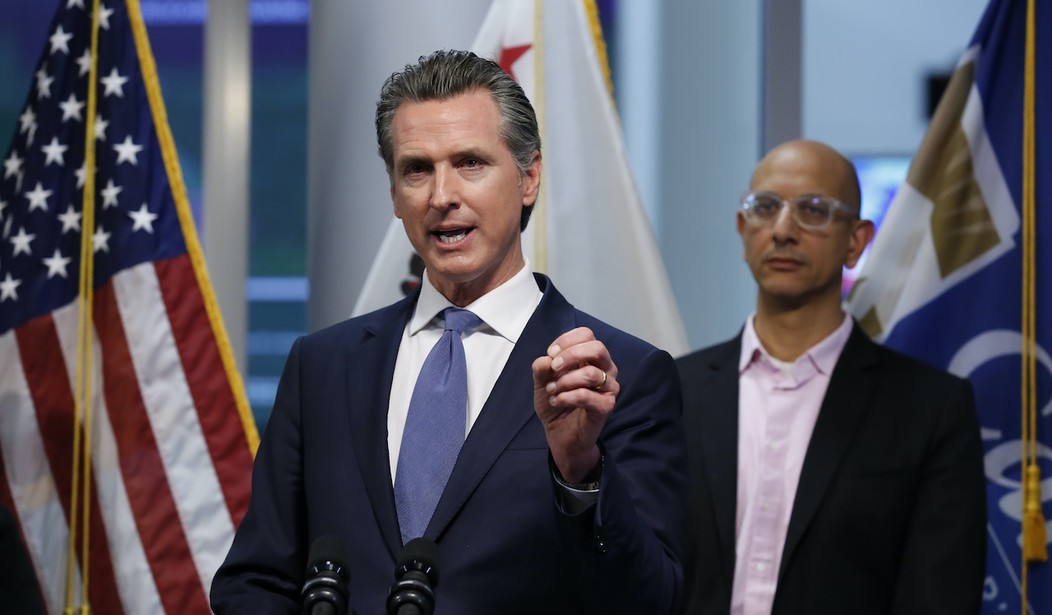April’s jobs report was the worst in U.S. history, with 20.5 million jobs lost thanks to the coronavirus and subsequent lockdowns. Some layoffs are temporary and likely to return as soon as lockdowns are lifted, but a full recovery could take quite some time. Exactly how long will depend in large part on the degree to which government policy prevents market dynamism.
To climb out of the massive pit the economy has been thrown into, it will take not just the release of workers from their homes, but also entrepreneurs and innovators capable of adapting to a new economic environment. Unfortunately, innovators are often treated very poorly by all levels of government. And the worst offender is arguably California, which, as the largest state, has a profound impact on the national economy.
Consider last year’s passage of AB 5. It upended California’s gig economy by requiring that contractors be reclassified as employees, even against their will, when certain thresholds were met. The arbitrary caps were set so low that self-employed freelancers have been devastated by a loss of work as many companies suddenly stopped working with California workers. They were forced to choose between giving up the flexibility and control that comes with self-employment or being newly unable to take on sufficient work to pay their bills.
The legislation looks particularly short-sighted in the era of social distancing, where Americans are looking for opportunities to work from home now more than ever.
The state’s regulators are also unfairly attacking an innovative hotel business. OYO Hotels has disrupted traditional business models in the industry, but its entrance into the US market has been beset by government obstacles.
OYO focuses on the small hotels ignored by the large chains, offering them proprietary technology and marketing assistance to dramatically improve their ability to reach and attract customers, along with capital to ensure their rooms are up to the company’s standards, and their partners typically see a significant jump in occupancy. Started in India, it quickly grew to become the second largest chain in the world, spanning 80 countries, and is now looking to establish a presence in the United States.
Recommended
But California’s regulators have other ideas. They are determined to force a new business model into an old template. Specifically, they claim that OYO’s activities make it a franchise, and therefore it was required to seek approval before ever operating in the state.
Requiring permission from the local czars to engage in economic activity does not lead to a robust economy. But the bigger issue in OYO’s case is that they are not even operating as a franchise in California.
Where a franchise model requires an upfront payment from the franchisee in exchange for access to a brand, OYO puts skin in the game. It partners with hotels to make improvements and then shares in the success. It also offers a minimum gross revenue guarantee, tailored to the financial situation of each hotel, as part of its agreement.
OYO does also have a franchise model that it has deployed in some other markets, and may yet bring to the U.S., but the determination of whether that is the best approach should be made by market participants, not unelected bureaucrats.
Treating OYO as a franchise even when it does not meet the statutory requirements would impose unnecessary and costly regulatory burdens. Unfortunately, regulations tend to be written with the last business model in mind, while innovators are always looking for the next one. Regulators need to remember that they exist to cater to the needs of the market, not the other way around.
In response to economic pressure surrounding the coronavirus, states have suspended hundreds of regulations that were never actually needed in the first place. These range from restrictions on telehealth services to prohibitions on alcohol delivery.
Given the financial hit that the coronavirus has had on the travel industry, innovation and investment of the sort brought by OYO should be welcomed with open arms. Policymakers ought to reel in regulators who refuse to do so.
In good times it is easy to tolerate a certain number of bad policies, or to justify inaction on the grounds that there may be higher priorities than removing regulatory barriers. But when every policy could mean the difference between bouncing back economically and a prolonged depression, a critical look at the nation’s regulatory landscape is warranted.

























Join the conversation as a VIP Member